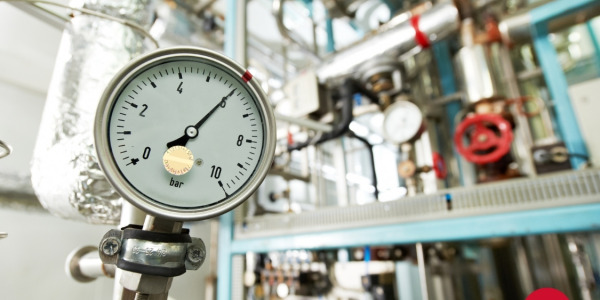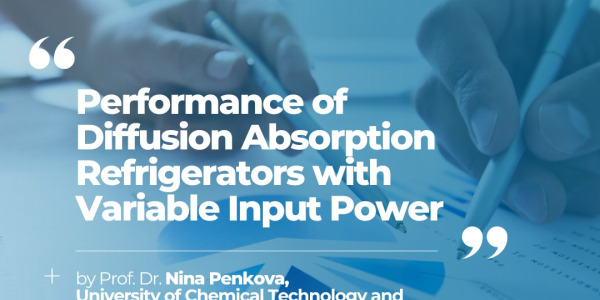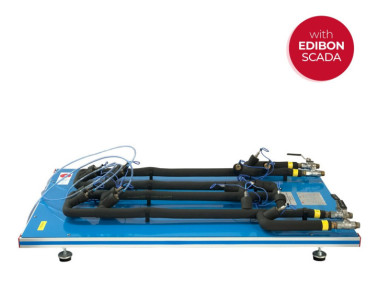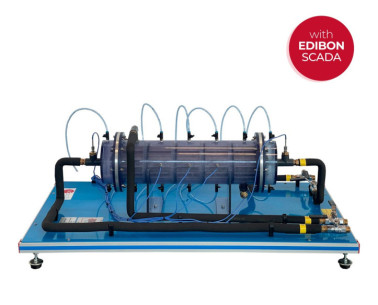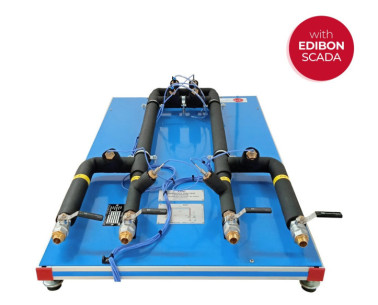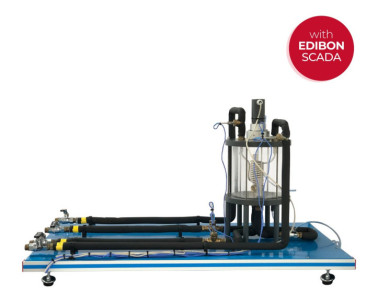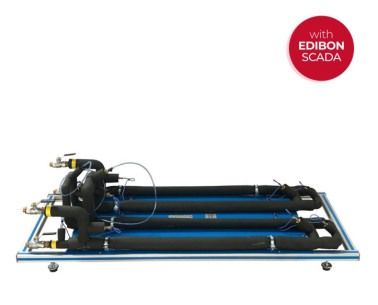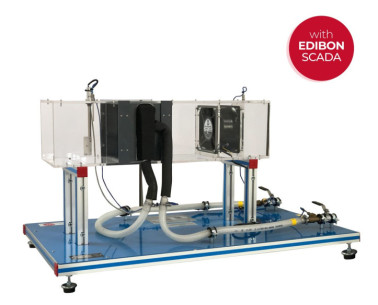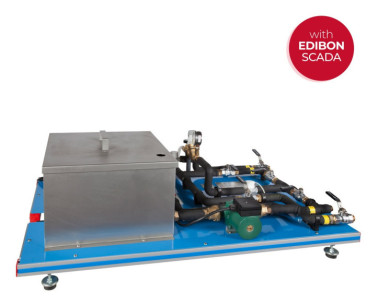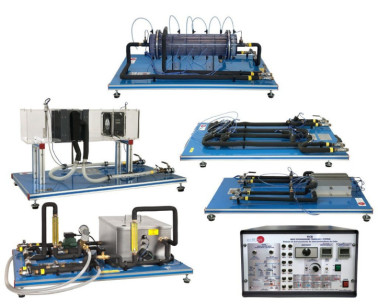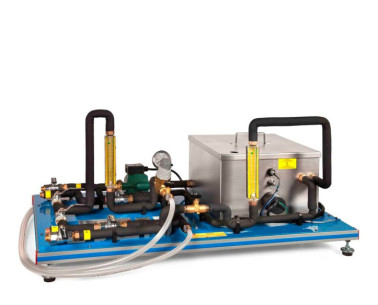TIVE 带夹套容器的热交换器,用于 TICC
創新系統
The Jacketed Vessel Heat Exchanger for TICC, "TIVE", designed by EDIBON, provides a comprehensive environment for the detailed study of heat transfer between two non-mixing fluids. In this unit, hot water flows through a jacket, transferring heat to the cold water flowing inside the vessel. This way, the hot fluid heats the jacket, allowing the heat to be transferred to the cold fluid inside the vessel.
扩展
化验室
相關新聞
一般說明
The Jacketed Vessel Heat Exchanger for TICC, "TIVE", designed by EDIBON, provides a comprehensive environment for the detailed study of heat transfer between two non-mixing fluids. In this unit, hot water flows through a jacket, transferring heat to the cold water flowing inside the vessel. This way, the hot fluid heats the jacket, allowing the heat to be transferred to the cold fluid inside the vessel.
This heat exchanger is commonly used in industrial applications to heat or cool liquids in tanks or containers, such as in the food, chemical, or pharmaceutical industries, among others.
This unit enables the analysis of heat transfer variation under different conditions, such as changes in flow rate, temperature, and flow type. With a design optimized for efficient heat transfer, the Jacketed Vessel Heat Exchanger for TICC provides an effective tool for analysis and experimentation in heat exchange. Additionally, it allows temperature measurement between the jacket and the vessel, which is essential for ensuring efficient thermal exchange and detecting potential issues, facilitating the monitoring of the exchanger’s efficiency and design optimization. These detailed measurements enable adjustments to the exchanger’s operation to improve its performance and ensure adequate heat flow between the circulating fluids.
In summary, the Jacketed Vessel Heat Exchanger for TICC, "TIVE", offers students, professors, and researchers the opportunity to deeply understand and apply the fundamental principles of heat transfer in jacketed vessel exchangers. Thanks to its innovative design, this unit provides a detailed and applicable understanding in the industry.
To work with this unit, the Base and Service Unit, "TIUS", is required, which provides key functions such as heating water using a thermostatic bath, pumping hot water, regulating and measuring the flow rates of cold and hot water, measuring the inlet and outlet temperatures of cold and hot water, as well as measuring the pressure drop in the heat exchanger.
These Computer Controlled Units are supplied with EDIBON Computer Control System (SCADA), and includes: The unit itself + a Control Interface Box + a Data Acquisition Board + Computer Control, Data Acquisition and Data Management Software Packages, for controlling the process and all parameters involved in the process.
練習和指導練習
手册中包含的指导实践练习
- Global balance of energy in the heat exchanger and losses study.
- Determination of the exchanger effectiveness. NTU Method.
- Influence of the flow on the heat transfer. Calculation of the number of Reynolds.
- Influence of the vessel stirring on the heat transfer when operating in batches.
- Influence of the vessel’s water volume on the heat transfer when operating in batches.
- Sensors calibration.
与该单位进行更多实际操作
- Study of the hysteresis of the flow sensor.
Other possibilities to be done with this unit:
- Many students view results simultaneously. To view all results in real time in the classroom by means of a projector or an electronic whiteboard.
- Open Control, Multicontrol and Real Time Control. This unit allows intrinsically and/or extrinsically to change the span, gains, proportional, integral, derivative parameters, etc, in real time.
- The Computer Control System with SCADA and PID Control allow a real industrial simulation.
- This unit is totally safe as uses mechanical, electrical and electronic, and software safety devices.
- This unit can be used for doing applied research.
- This unit can be used for giving training courses to Industries even to other Technical Education Institutions.
- Control of the TICC unit process through the control interface box without the computer.
- Visualization of all the sensors values used in the TICC unit process.
- By using PLC-PI additional 19 more exercises can be done.
- Several other exercises can be done and designed by the user.
可用的类似设备
用于 TICC 的板式热交换器
用于 TICC 的壳管式热交换器
用于 TICC 的同心管热交换器
带盘管的夹套容器热交换器,用于 TICC
扩展同心管热交换器,用于 TICC
扩展板式热交换器,用于 TICC
用于 TICC 的交叉流热交换器
配套设备
热交换器训练系统,电脑控制(PC)
基本服务和基础模块(适用于所有 "TI" 类型的热交换器)
用于 TICC 的同心管热交换器
扩展同心管热交换器,用于 TICC
用于 TICC 的板式热交换器
扩展板式热交换器,用于 TICC
用于 TICC 的壳管式热交换器
带盘管的夹套容器热交换器,用于 TICC
用于 TICC 的湍流热交换器
用于 TICC 的交叉流热交换器
热交换器训练系统
基本服务和基础模块(适用于所有 "TI..B" 类型的热交换器)
質量
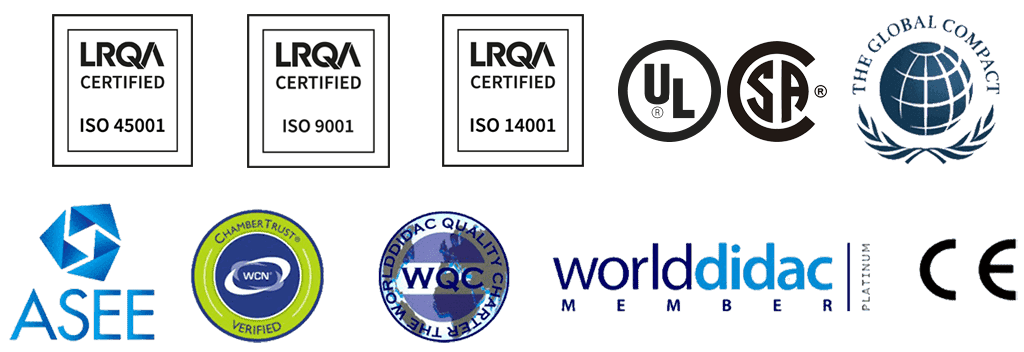
售後服務

 Cookies首选项
Cookies首选项










